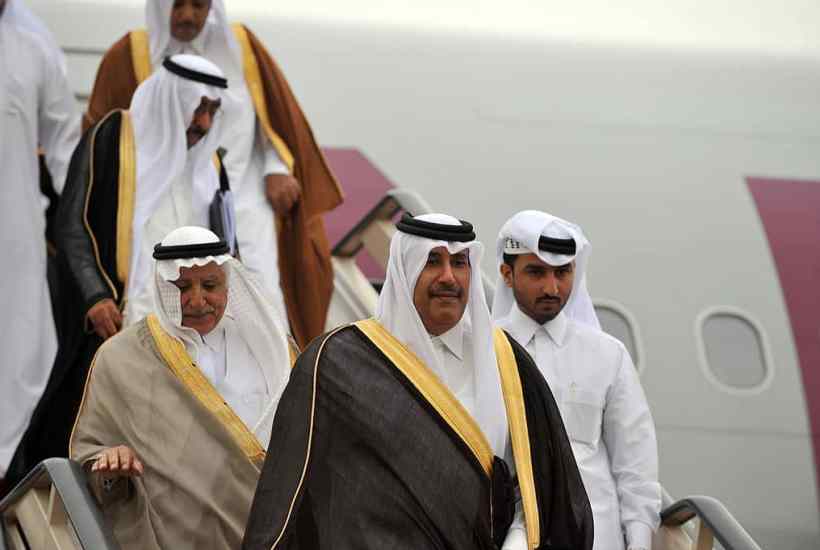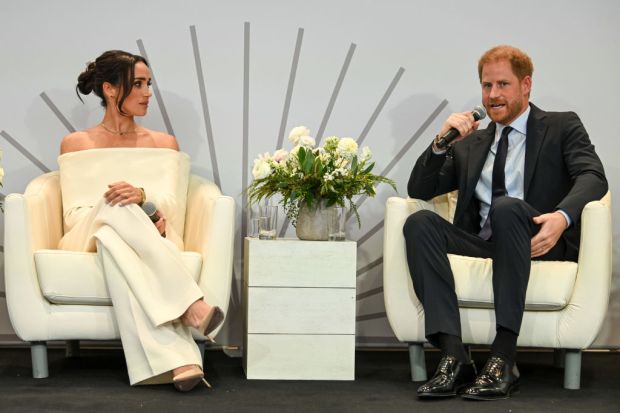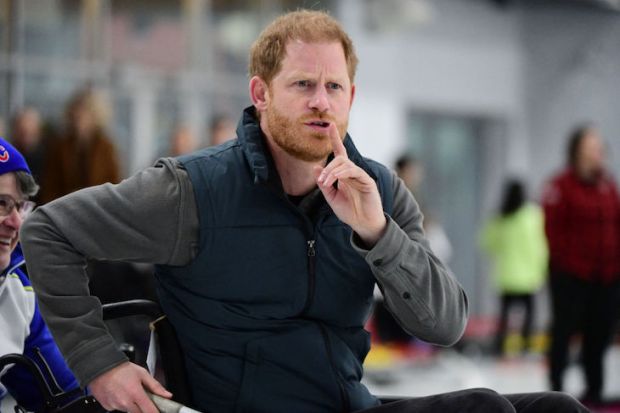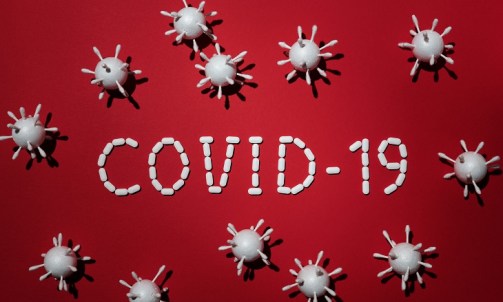The Queen rarely – if ever – accepts invitations to dinner at private houses, no matter how grand. But in the summer of 2014 the oil and gas rich Gulf state of Qatar became the first ‘official partner’ of Royal Ascot and secured branding rights for the King George VI and Queen Elizabeth II stakes. The Qataris also agreed to pay for the upkeep of the Castle of Mey which is owned by the royal family.
And so breaking with tradition the Queen accepted a dinner invitation and joined the ruling family of Qatar and assorted guests. The Qataris had just spent an estimated £75 million on their London mansion at Dudley House, Park Lane, and so were delighted. As she walked into the gilded hallway resplendent with gold and priceless antiques and paintings, the Queen paused, looked around and reportedly remarked that the property was more grand than Buckingham palace.
One of the honoured guests that historic evening was Sheikh Hamad bin Jassim bin Jaber al-Thani, known as HBJ, a prime minister and foreign minister of Qatar. While the Queen’s courtiers were aware of his political power, few knew the extent of his wealth and influence. He has accumulated an estimated fortune of $1.2 billion, although private assessments are adamant that it is closer to $50 billion. As the former Emir of Qatar once reportedly remarked: I rule Qatar but HBJ owns it.
In the Middle East that level of wealth is not unprecedented. But HBJ is unique in how he has used that fortune to cultivate and influence the most powerful pillars of the establishment in Britain, notably the royal family, arms manufacturers, banks, a former MI6 chief and a former prime minister.
And so, while the story of Prince Charles accepting €1 million in cash in a Fortnum and Mason carrier bag from HBJ for his charity is bizarre and grubby, it is consistent with the ambitions of Qatar to use their vast wealth to buy influence and status in Britain. And HBJ has been at the forefront of that campaign.
The former Qatari prime minister personifies the influx of Middle East petro dollars into London. He has been the pivotal figure in the buying up of properties for exorbitant prices which has so distorted the London property market, notably as joint owner of One Hyde Park with the Candy brothers. As head of Qatar’s $250 billion sovereign wealth fund, he oversaw the Qatari acquisition of London’s most prestigious trophy assets, notably Harrods, the Shard and Claridges, Connaught, Berkeley Hotels and London’s Olympic Village. And he owns UK-listed companies like Heritage Oil.
All this wealth has been accumulated despite the fact that the Qatar constitution states that ‘ministers shall not use or exploit their official posts in any way for their own interests.’ HBJ has suggested, in an interview, that ‘the wealth which I have – like any Qataris have – might be some of it legitimate but by your standards, you will say that there is a question.’
In foreign affairs HBJ represents the growing power of Qatar as a strategic ally of the UK and USA in the Middle East. Its bilateral relationship with the US is regarded as crucial in the war against Islamic terrorism. In return for a security guarantee, Qatar allows the Americans to use its land for military and air bases and access to its intelligence to such an extent that the Gulf state rivals Saudi Arabia as the USA’s most valued ally in the region. And HBJ remains influential in cementing that relationship via the Qatar Ambassador in Washington DC. This is despite allegations that Qatar sponsored terrorism under his watch. He once said that Qatar ‘maybe’ financed the Syrian branch of al-Qaeda.
A rare glimpse into HBJ’s private deals emerged in 2001 when documents revealed his role in an arms contract. After a coup in 1995 to overthrow the Emir (in which HBJ played a crucial role) Qatar awarded a £500 million arms deal to BAE. The secret role of HBJ to choose the British bid rather than the French was revealed when Jersey reluctantly released documents which showed that BAE had made payments into Jersey bank accounts which had HBJ listed as a beneficiary.
In response to these claims, HBJ admitted that he was paid by BAE but denied that there were bribes and said they were ‘commission’ payments. Intense political pressure by Tony Blair’s government was then placed on the Jersey authorities to drop their investigation and they complied. The attorney general in Jersey admitted that the reason for closing down the inquiry was for international relations. Remarkably, HBJ then paid the Jersey authorities £6 million ‘for any damage perceived to have been sustained’, although he denied any wrongdoing.
There was later a twist in this tale when Julia Aldridge, a former senior BAE executive, was interviewed by the SFO during their investigation into BAE. She recalled that BAE’s advisor in Qatar had been a company called Euromoga. But when she visited Euromoga’s office in Switzerland to withdraw documents while terminating a contract, she was shocked when their lawyers told her that they had a mandate to destroy files about Qatar.
At the height of the financial crisis in 2008, Barclays Bank received a total of £6.1 billion from Qatar Holdings, a subsidiary of the Qatar Investment Authority, and Challenger Universal, a private investment vehicle. HBJ was head of all three entities and Challenger was used to hold Barclays shares for himself and his family. The bank was desperate for more capital but not from UK state funds. And so Qatar bailed them out in the form of injecting capital.
After the crisis was averted, it was alleged that Barclays had not disclosed £322 million in secret fees that it had paid to the Qatar Investment Authority when the Qataris bought shares in the bank.
Despite the transactions raising more flags than a Communist party parade, the enhanced due diligence required was overlooked by the bank. The Qatar investment prompted several regulatory and criminal investigations. There was no suggestion of wrongdoing by HBJ who later expressed regret that ‘no one thanked us for it’ (the bailout).
Like any oligarch, HBJ has parked hundreds of millions of dollars in property in London via offshore companies. Indeed, it was his investment in One Hyde Park that first triggered the debate about the use of offshore entities to buy London property. He paid over £100 million for an apartment at One Hyde Park. He has also spent another £80 million on a townhouse off Belgrave Square using a BVI company and two houses on Trevor Place in Knightsbridge.
One Hyde Park is the visual symbol of foreign money which has flooded into London over the past 20 years. Billionaires like HBJ have paid exorbitant prices for houses which experts say has inflated the property market in the capital for the vast majority of its residents and denied them the opportunity to buy their own home.
Behind the scenes HBJ has been active in cultivating establishment figures to secure a cloak of legal protection and enhance his influence in the Foreign Office. As chairman of Qatar Holdings, he was instrumental in using Sir Tony Blair as a middleman to negotiate the purchase of Claridges, the Connaught and Berkeley Hotels. He has also recruited Sir John Scarlett, former Chief of MI6.
Later this year the vast wealth and influence of Qatar will be on full display when they host the World Cup. Unsurprisingly, HBJ was at the forefront of lobbying to win the vote and hold this prestigious event. But it will be the new revelations of the former Qatari Prime Minister handing over three installments of €1 million in cash in suitcases to the heir to the throne that will revive claims of the Middle East trying to buy influence. It is a safe bet that the Queen will not be accepting any more invitations to dinner at Dudley House.
Got something to add? Join the discussion and comment below.
Get 10 issues for just $10
Subscribe to The Spectator Australia today for the next 10 magazine issues, plus full online access, for just $10.




















Comments
Don't miss out
Join the conversation with other Spectator Australia readers. Subscribe to leave a comment.
SUBSCRIBEAlready a subscriber? Log in